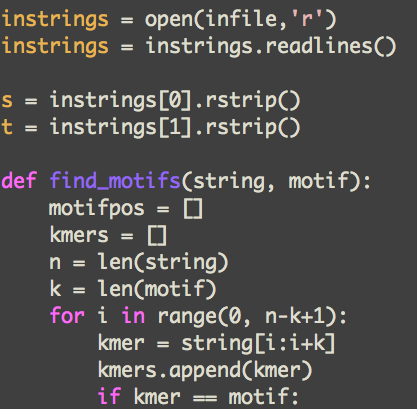Example 1
The abs() function in Python takes the absolute value of a number
>>> abs(3)
3
>>> x = -3
>>> abs(x)
3
We want to translate the abs() function to assembler language. First think how we would do it in Python if we didn’t have the built in function:
if x < 0:
x = -1 * x
Now how would we write this in assembler language?
Example 2
How would we write the following Python code in assembler?
n = 3
sum = 0
while n >= 0:
sum = sum + n
n = n - 1
Example 3
How would we write the following Python code in assembler?
if x == 0:
y = 3
else:
y = 5
z = z + y
We will intialize x, y, and z by hand in the simulator to test our code.
